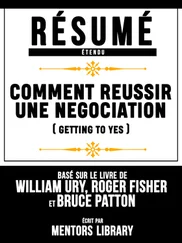Roger Crossland - Red Ice
Здесь есть возможность читать онлайн «Roger Crossland - Red Ice» весь текст электронной книги совершенно бесплатно (целиком полную версию без сокращений). В некоторых случаях можно слушать аудио, скачать через торрент в формате fb2 и присутствует краткое содержание. Город: New York, Год выпуска: 2016, ISBN: 2016, Издательство: Open Road Distribution, Жанр: Боевик, Триллер, на английском языке. Описание произведения, (предисловие) а так же отзывы посетителей доступны на портале библиотеки ЛибКат.
- Название:Red Ice
- Автор:
- Издательство:Open Road Distribution
- Жанр:
- Год:2016
- Город:New York
- ISBN:978-1-5040-3069-4
- Рейтинг книги:4 / 5. Голосов: 1
-
Избранное:Добавить в избранное
- Отзывы:
-
Ваша оценка:
- 80
- 1
- 2
- 3
- 4
- 5
Red Ice: краткое содержание, описание и аннотация
Предлагаем к чтению аннотацию, описание, краткое содержание или предисловие (зависит от того, что написал сам автор книги «Red Ice»). Если вы не нашли необходимую информацию о книге — напишите в комментариях, мы постараемся отыскать её.
Red Ice — читать онлайн бесплатно полную книгу (весь текст) целиком
Ниже представлен текст книги, разбитый по страницам. Система сохранения места последней прочитанной страницы, позволяет с удобством читать онлайн бесплатно книгу «Red Ice», без необходимости каждый раз заново искать на чём Вы остановились. Поставьте закладку, и сможете в любой момент перейти на страницу, на которой закончили чтение.
Интервал:
Закладка:
A passenger train whizzing by in the opposite direction made the train wobble. Two children in school uniforms played with a toy robot or spaceman the size of my thumb.
Why?
Was it factors beyond my control? Environment? Had there been something in my food? Water? Air?
The town of Pequonnock was a brick-and-cobblestone collage of rubber factories, shoe and sweater mills, and heaps of bivalve shells. It was jammed with a little bit of everything. You could go a mile down the coast from the coal barges and see some of the most impressive sailing yachts in New England. Not many of the townspeople had anything you could call a yacht, though more than a few had boats.
The style was smokestack exotic. Some joked that our phone book had the greatest concentration of consonants in the state. We had pastry shops in four languages. It took a month and a half for the divergent groups to stop celebrating their different Christmases.
My memories were of boyish games played in and about the railroad sidings, the piers, and the barges near where my father worked. And of flashlight tag, led by an Estonian scoutmaster, around upstate ponds. It was a game at which I excelled. You could will yourself into invisibility. Conform to the low-lying scrub, and don’t move. Don’t flutter an eyelash.
In later years I remember roaming the dunes and tidal marshes that formed an L at one end of town. These coastal badlands were the site of endless imaginary adventures. The occasional old tire, the abandoned refrigerator, and the three-wheeled shopping carts became props for my solitary fantasies. But Pequonnock had a way of jarring you back.
The Hungarian revolution left its mark on the town. The work force, already heavily central European, swelled with Hungarian refugees within the year. A year later a tufted-browed teacher arrived at our school. His fastidious manner, Gabor-sister accent, and firm sense of discipline did not sit well with his students. On my way out of the school building one day, I spotted two schoolmates with DA haircuts loosening the lug nuts on Mr. Horvath’s tires.
“Get away from that car.”
“Aw, get stuffed, rah-rah.”
“You heard me, get away from that car.”
I waivered.
“It’s old man Horvath’s, an’ he gets what he gets. Man, you ever hear ’im talk? Sounds like a fairy kraut or weirdo Russki or somethin’.”
“You’d be the funny-sounding one where he comes from,” I said lamely.
“Well, send him back. Hey, smartstuff, just get out of here. Or maybe you wanna stop us?” one said, working himself up.
I tried. Things were always scuffling and inconclusive at that age. Then, too, they had the tire iron. In the end it cost me twelve stitches, a lump on the head, a jammed thumb, and two weeks of detentions levied by Horvath. He had, however, offered to drive me home after we retightened the lug nuts.
“I am a civilized man,” he said with his eyes firmly on the road. “Am” sounded like “ham.” “It is my recently learned experience,” the weary teacher said thoughtfully, “that it is not very good to be too civilized.”
The train passed through a tunnel that reminded me of a collapsed parachute and a training raid in Korea. The SEAL parachutist had broken his back.
Why?
Maybe it was just me.
A series of aptitudes and inclinations marked the course I held. These aptitudes and inclinations stood out like channel buoys among the flotsam and jetsam that defined Quillon Frazer.
Clausewitz had said that war was the province of physical exertion and suffering.
I was good at sports, but particularly drawn to mettle-testing “ordeal” sports: distance running, distance swimming, cross-country skiing, and the like. Then again “punishing” sports like boxing, wrestling, and the martial arts carried great weight in a blue-collar town. If nothing else, they kept the schoolyard predators away from a management kid who read too much. Unconsciously, I had prepared and continued to prepare myself for wars of movement where man alone provided the only reliable momentum, and for battles fought at close quarters where the ability to absorb pain and a strong arm might make the difference.
Clausewitz had stated that war was the province of friction.
You could talk about the world the way it ought to be. Others could do that. The world the way it ought to be seemed a long way off to a veteran with my combat experience. Yet the hot spots of the world were where it was changing, for the better if I could help it. These hot spots were the points of friction for careening political philosophies, religions, cultures, and economies on collision courses.
Some men could change the coefficient of friction at these points. Worldwide, at any given time, there were perhaps five hundred men who had participated in special operations under fire and were ready to participate in them again. I was one.
War was a rough study in abrading contrasts, but it was an important study. There would always be war in the same way there would always be disease. If you acknowledged that and realized that you brought a degree of skill and industry to your side, then you appreciated the parallel between you and the surgeon who, through the destructive cut of his knife, saved good tissue and prolonged life.
And Clausewitz had said war demands resolution, firmness, and staunchness.
A friend of mine had gone to work for the CIA. He had said that through their written testing they could tell if you had a sense of destiny. It was an important point. Anyone who volunteered to put himself in harm’s way had to feel that someday, in some way, he would be needed to fit into some important event.
Unconventional warfare was my fate. I was a fast learner in a field where no two operations were alike. I could absorb complex theory and give it concrete and immediate application. Evident, too, was my knack for carving order out of chaos, for organizing and directing. Finally there was something about me, some personality quirk that made me the type of officer the right kind of men wanted to follow. Resolution? Firmness? Staunchness? I could never be sure.
In any event I knew what I did best. It was the only thing I could do with more than half a heart. It was, for better or worse, what I was destined to be.
And a naval officer, a specialist in unconventional warfare, was what I knew I could never, ever be again… in any sanctioned manner.
My shoulder ached more than ever.
I spent the trip back to Yokohama, gazing out the window, hefting and sorting plans like an old woman buying fruit. My concentration was so total I nearly missed my stop.
An attack on the Russian mainland would be tough enough. The unforgiving Siberian winter narrowed the margin for error until it was the size of the peephole in an interrogation-room door.
Keiko sensed my preoccupation and quietly went about cooking supper. She studied her cooking intently, singing some soft Japanese song as I drafted a barrage of telegrams to Coronado, Little Creek, Manchester, Marseilles, Harare, Ramsund, and Chinhae.
When she was about to go down to work, she kissed me lightly on the forehead, and then as I rose, kneed me full force in the groin. While I staggered back trying to catch my breath, she bowed politely and left.
Ama women require attention and are never, never to be taken lightly.
CHAPTER 5
As the small KAL airliner lifted from the runway at Tokyo’s Narita Airport, I unloaded my worn briefcase and reread the telegrams I had received and deciphered prior to takeoff. They had been transmitted using a variation of the book code—not a terribly original crypto method, but for our purposes, effective. Each message left Yokohama in number groupings disguised as the price column on an invoice telegram. The addressee would, on receipt of the telegram, purchase three preselected monthly magazines—magazines without regional editions, and different ones for each addressee—to be used as decoding keys. The first price code group indicated which magazine and which page applied to the subsequent twenty-one characters. Every three characters gave the line and ordinal position of a letter in the underlying message. Then the process was repeated using another group, and this time twenty-four characters, progressing in added groups of three until the message was completed. No printed letter on a magazine page was ever used twice, and this was the marvel of the system. It could not be broken by a statistical frequency of letter-use analysis. In any given English paragraph of a minimum size, the letter e will appear most often, then s , then t , etc., and that’s how you broke elementary codes. Furthermore, our messages were too short for a computerized hit-or-miss analysis. But the code was only as secure as its users.
Читать дальшеИнтервал:
Закладка:
Похожие книги на «Red Ice»
Представляем Вашему вниманию похожие книги на «Red Ice» списком для выбора. Мы отобрали схожую по названию и смыслу литературу в надежде предоставить читателям больше вариантов отыскать новые, интересные, ещё непрочитанные произведения.
Обсуждение, отзывы о книге «Red Ice» и просто собственные мнения читателей. Оставьте ваши комментарии, напишите, что Вы думаете о произведении, его смысле или главных героях. Укажите что конкретно понравилось, а что нет, и почему Вы так считаете.












